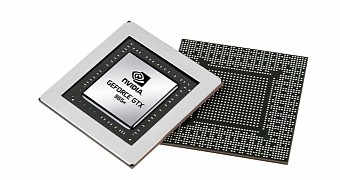Most people might say that trying to overclock a laptop's GPU is a fool's errand, since it already runs hot enough even without it, and they'd be mostly right. But NVIDIA has allowed discrete GPU overclocking for a while, and quite a few people have used that to their advantage.
From what we have seen in user testimonies, some owners of high-end laptops have been able to get up to 30% more performance out of their graphics chips.
This even though there is no way to upgrade the cooling capabilities of a laptop, other than getting a cooling stand that is more for comfort than anything.
AMD and NVIDIA actually have an advantage here because Intel does not allow overclocking for its CPU-integrated graphics chips. Not that it would help much if things were different, but we digress.
NVIDIA has apparently disabled GPU overclocking now, in the latest software release. And the two previous ones apparently.
10 years of history ruined
As dramatic as it sounds, users who reported this matter on the NVIDIA forums rightly pointed out that NVIDIA laptops have allowed overclocking for around a decade.
Say you have a system with a 900M series GPU. You could overclock it with up to 135 more MHz and still have stability of 100%.
However, now this is impossible. We even have reports about people buying gaming laptops that allowed GPU overclocks in the beginning but then lost the ability after driver updates.
The issue has been around for 4 months but is only now gathering Steam because it's long past the point where it can be considered a bug, especially since the latest two drivers did not address it.
The reason behind this
Officially, NVIDIA said that “GeForce notebooks were not designed for overclocking” and that the ability to do it was a bug that reduced system lifespan.
Some of the users experiencing this problem are skeptical of this reasoning, to say the least. They have speculated that NVIDIA may have been strongarmed into imposing the limitation by laptop makers.
New gaming laptops are coming out all the time, but this is that part of the year when no new GPUs are being released, meaning that there isn't much incentive to get a new mobile PC, or a desktop, but that's neither here nor there.
Having the ability to overclock the GPU would negate any reason to buy a laptop with a “refresh” discrete GPU of 10% better clock.

 14 DAY TRIAL //
14 DAY TRIAL //